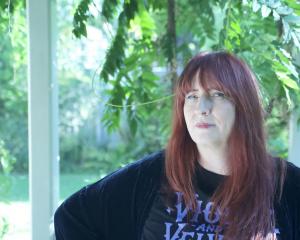There is a certain bewilderment in today's society about whether there is a place for religion.
Some people cling to traditional concepts, some reject religion completely, and in between are those who reject established faiths, such as Christianity, but vaguely feel there should be something.
This post-secular category is one authors are addressing with varying degrees of success.

He substitutes a noumenon (or "Self") for the Christian Godhead but achieves little by doing so.
Having denied there is a God capable of good or evil, Hamilton posits this inner God/Self as the arbiter of our actions.
But his "new" ethical code, far from being anything radical, is curiously old-fashioned, one that would not have been out of place in a 19th-century pulpit.
Sex, for example, is a sacred act to be used only in monogamous marriage for the purpose of procreation - anything else is taboo, if one listens to this inner Self.
Other forms of love dare not exist, let alone speak.
While focusing solely on the question of sexuality does not do justice to Hamilton's thesis, it is one of the more easily read sections in a book packed with solid philosophical arguments.

The Oxford theologian has no doubt that God must be understood as being perfectly good and is the source of moral obligation.
He presents fairly traditional proofs for the existence of the Trinity.
But whereas Hamilton uses the noumenon as a path to moral obligations, Swinburne reverses this by using our moral code as proof of the existence of God.
It is unlikely post-secularists will readily bow to Swinburne's robust, closely argued theology.
Post-secularist sexual mores - or, more accurately, the lack of them - are a large part of the motivation behind George Bryant's New Zealand Without God? (Whau Publications, pbk, $27.95).
His solution has echoes of Hamilton's thesis: the development of a non-denominational (or, as he calls it, "non-religious") Christianity focused not on a transcendent God but "the God within".
It all sounds rather Utopian.
- Review by Geoffrey Vine
Geoffrey Vine is a Dunedin journalist and Presbyterian minister.












